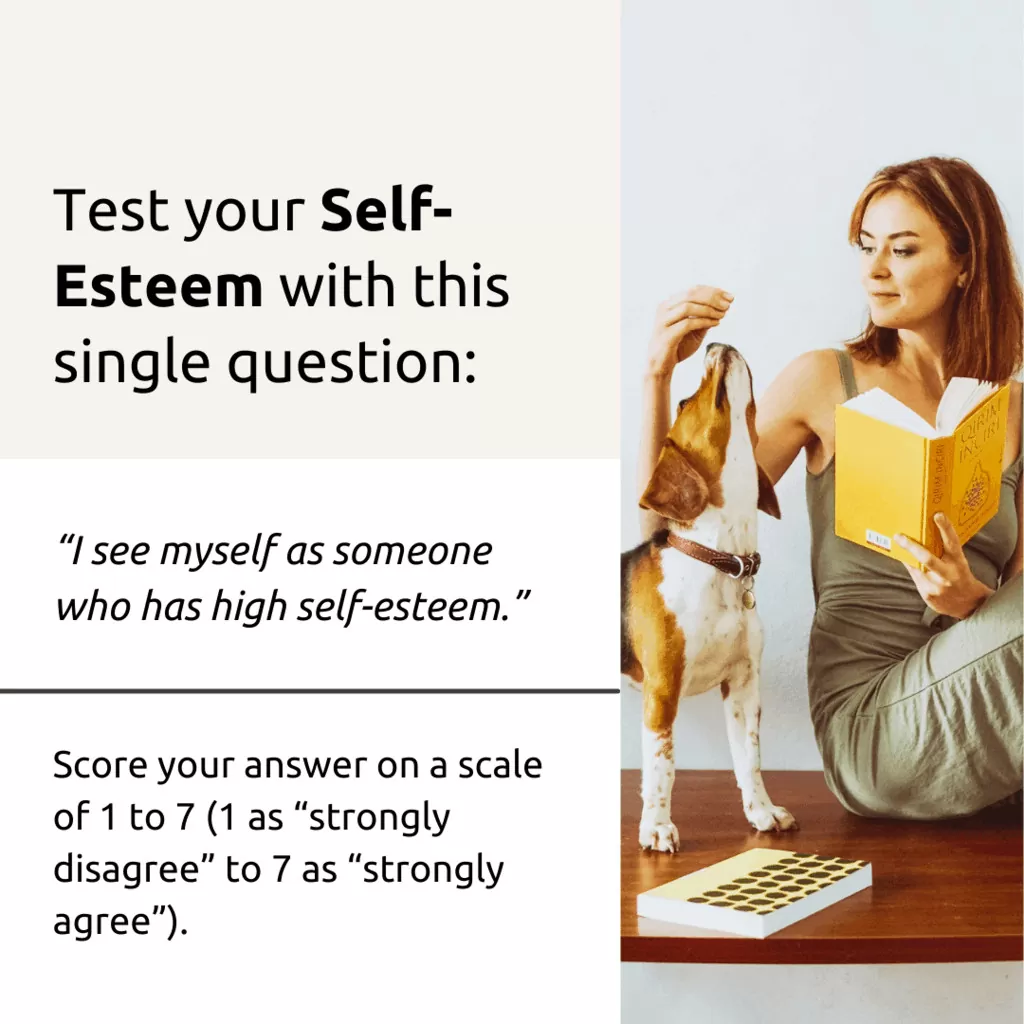Today's Sunday • 3 mins read
— By Dr. Sandip Roy.
- Someone compliments you, and you brush it off, thinking they’re just being polite.
- A friend cancels plans, and you assume it’s because they don’t actually enjoy your company.
- After finishing a project, you fixate on the one mistake you made instead of everything you did right.
These thoughts could reflect a deeper pattern—low self-esteem. It often hides behind guilt, shame, or quiet anger, and can feed loneliness, anxiety, and depression.
Research indicates that individuals with higher self-esteem report greater happiness, life satisfaction, and optimal functioning (Diener & Diener, 1995).
Thinking of good things you’ve done and telling yourself positive things can help your self-esteem, but the effects don’t last long. Real change begins when you start observing yourself non-judgmentally.
That’s what mindfulness can do: change how you see and treat yourself without judgment. So, let’s find out how to overcome low self-esteem with mindfulness.
Test Your Self-Esteem
First, test yourself. The most common tool used to assess self-esteem is the Rosenberg self-esteem scale (RSES). However, there is also a valid and reliable Single-Item Self-Esteem Scale (SISE) by Robins & Hendin, 2001.
Answer this one question to measure your self-esteem:
Measure Your Self-Esteem
Based on the Single-Item Self-Esteem Scale (SISE) by Robins, 2001
How To Overcome Low Self-Esteem With Mindfulness
Studies show that even 10 to 15 minutes of daily mindfulness can gradually weaken the patterns that fuel low self-esteem. Mindfulness helps you step back from harsh self-judgment and relate to your thoughts with clarity and acceptance.
Mindfulness means being aware of the present moment with openness and without judgment. Here’s a simple way to begin:
Step 1: Notice the thought.
When you catch yourself in harsh self-judgment, pause. Don’t argue with the thought or try to suppress it. Just acknowledge that it’s there.
Step 2: Add distance.
Before the negative thought, add the phrase “I’m having the thought that…” For example, instead of “I’m never any good,” say to yourself, “I’m having the thought that I’m never any good.” This small shift helps you see thoughts as passing events rather than truths.
Step 3: Return to the present.
Bring your attention back to what’s happening right now. Notice your breath, sensations in your body, or sounds, smells, or airflow around you. The present moment doesn’t contain the judgment; the judgment lives only in your interpretation.
Building a mindfulness habit takes time, but the freedom it creates extends far beyond self-esteem. You may notice less inner resistance, calmer emotions, and a gentler relationship with yourself.

Some other ways to strengthen your self-esteem: Keep a thought diary to challenge negative beliefs, stay physically active to boost mood and confidence, spend time with positive people, get enough sleep, eat well, and make time for activities you genuinely enjoy.
What Low Self-Esteem Actually Looks Like
Low self-esteem makes you judge yourself harshly until those judgments start to define who you are. Then others begin to see you that way.
It can show up as social withdrawal, constant self-doubt, or feeling awkward in groups. You may dismiss your strengths, deflect compliments, or try too hard to please people.
Relationships can grow strained. Some even develop a hostile attribution style—reacting defensively or with anger to mild criticism.
Habits like smoking or drinking may worsen. You might lose interest in activities you once enjoyed.
Speaking up or asserting yourself becomes harder. Motivation and performance drop.
Low self-esteem can have roots in childhood stress, emotional cruelty, controlling relationships, social rejection, social comparison, financial hardships, and relationship betrayal.
Psychology of Self-Esteem
Self-esteem is one of the oldest ideas in psychology. William James described it in 1890 as the ratio between success and pretensions. The formula is expressed as:

James’ idea was that there are two ways to achieve high self-esteem: by increasing your successes or by lowering your aspirations.
So, a person with low aspirations and few successes could have high self-esteem, as their reality would match their expectations. While a person with high aspirations but few successes would have low self-esteem.
Today, psychologists define self-esteem simply as how you feel about yourself: your overall sense of worth and attitude toward your own existence.
At its core, self-esteem rests on two foundations: belonging and mastery.
- Belonging is the feeling of being valued and accepted for who you are, not for what you achieve.
- Mastery is the belief that your actions matter—the confidence that you can handle life’s demands and make progress in what you do.
Mindfulness can strengthen both. It helps you notice your thoughts and emotions without judgment, loosening the grip of self-criticism. Over time, this practice cultivates self-acceptance, emotional balance, and genuine confidence.
Research backs this up.
- A study by Pepping and colleagues found that just 15 minutes of mindfulness training raised students’ self-esteem.
- An analysis of 17 studies similarly found that mindfulness training consistently improved self-esteem.
- Brain scan studies by Norman Farb and others show that mindfulness reduces activity in the brain regions tied to self-evaluation and increases activation in areas linked to present-moment awareness.
In simple terms, mindfulness quiets the inner critic and strengthens your ability to stay engaged with life as it unfolds.
Mindfulness for Stable Self-Worth Through Self-Compassion
Self-esteem often rises when we feel special or superior, but drops after failure or criticism. Mindfulness can improve and stabilize self-esteem via self-compassion.
Research shows self-compassionate people experience less depression, anxiety, and emotional volatility than those who are highly self-critical (Neff, 2003). Unlike self-esteem, which depends on success, comparison, and external approval, self-compassion offers steadier support.
Self-compassion isn’t about feeling better than others. It’s about acknowledging your imperfections with kindness and understanding. You feel worthy not because you outperform others, but because you are human.
Studies by Neff, Leary, and colleagues show that self-compassionate people recover faster from rejection and failure, take greater responsibility for mistakes, and are less prone to defensiveness or narcissism. Their sense of worth doesn’t collapse when praise is absent or feedback is neutral.
Mindfulness strengthens this quality by helping you see your thoughts and judgments as transient events, not fixed truths.
As Sharon Salzberg, author of Lovingkindness: The Revolutionary Art of Happiness, puts it, we often see life as if “looking at the sky through a straw.” Mindfulness widens that view, letting you see yourself and others with more balance and less self-judgment.
Final Words
Mindfulness isn’t about fixing yourself. It’s about seeing your thoughts without the distortion of judgment. That shift can quietly redefine how you experience yourself and the world.
If you feel you are going through a low self-esteem phase, start a daily practice of mindfulness. Even 15 minutes a day is enough.
Keep checking your self-esteem at monthly intervals after starting mindfulness practice.

• • •
√ Also Read: Beginner’s Guide: Mindfulness In 7 Steps.
√ Please share this if you found it helpful.
» You deserve happiness! Choosing therapy could be your best decision.
...
• Disclosure: Buying via our links earns us a small commission.